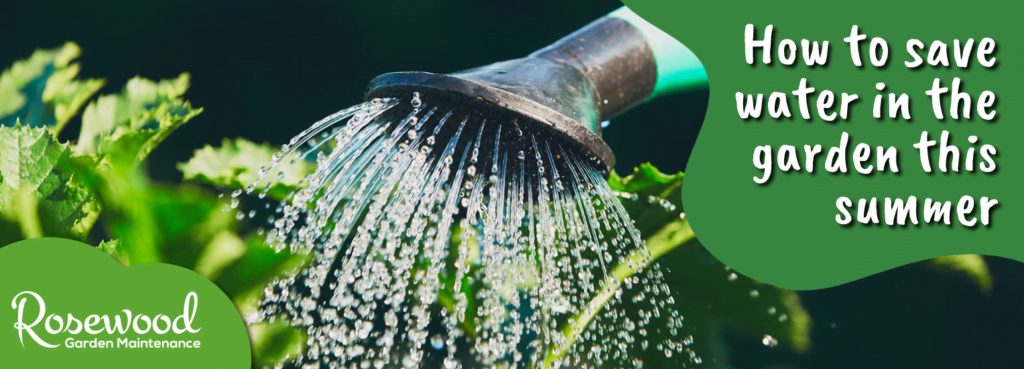
Here in the UK, the weather is notoriously unpredictable – ranging from blazing sunshine one day, to torrential rain the next. Whatever the weather, it’s always a good idea to get in the habit of saving water in your garden, especially with monthly bills on the rise! Here are our tips on how to save water in your garden this summer.
Saving rainwater
Saving rainwater is the best way to minimise the amount of water you use in the garden. Fix a water butt to every rainwater downpipe on your house, shed, greenhouse, conservatory or garage. Slimline models are available for smaller gardens or tight spaces.
Did you know, that just one water butt can hold enough rainwater to fill a watering can 25 times. Based on the average rainfall in the South East, you could fill your butt up to 450 times a year. All that free water means you can use less tap water, saving you money on your bills.
Rainwater is full of nutrients, so your plants will actually prefer it to tap water. Plus, the less tap water you use, the less we have to take from rivers, reservoirs and underground sources. So, you’ll be reducing pressure on the environment as a whole.


Use alternatives to a hose pipe
Watering the garden with a hose pipe uses 1000 litres of water an hour! Watering the garden with a watering can use 10 litres of water. To put this in perspective, the average bath uses 80 litres of water.
Hose pipes, whilst convenient, can waste massive amounts of water when they are just left to run, so it’s good to use an alternative where possible.
Using a watering can or a rainwater-fed irrigation system can save literally buckets of water. If you must, use handheld hoses fitted with a trigger nozzle as they will allow you to control the water flow. This is much more efficient than having the water running constantly.

Add mulch to your soil
Mulching is generally used to save water, suppress weeds and improve the soil around plants but it also gives your garden a neat, tidy appearance and can reduce the amount of time spent on tasks such as watering and weeding.
The best mulches to use during the growing season, or indeed at any time of year, are organic mulches, which means any material consisting of decomposed or decomposing plant matter. Compost, grass clippings, bark chippings, straw, and leafmould, which is made from composted tree leaves, are just a few examples.


Be mindful of where you water
When you water your plants, aim for the roots. By aiming at the roots rather than the leaves, you will reduce the amount of evaporation from the surface of the leaves. This approach also allows your plants to absorb the moisture more easily, and direct it exactly where it needs to be!
Use water-retaining crystals
Water-retaining crystals can be great if you have lots of small pots or hanging baskets in your garden. They essentially hold on to the water you provide and swell up. Keeping hold of the water and allowing you to go longer without having to top it up.
It’s important to note that the granules will swell to a considerable size when wet. Be careful not to exceed the rate of application recommended on the pack when adding them to your soil. An excess amount will swell and push the plants up and out of their containers.
Struggling to keep on top of your gardening tasks?
We understand it can be a time-consuming task to keep up with everything that needs to be done in the garden. That’s why the team here at Rosewood undertake everything from a one-off garden clearance to regular maintenance and grounds maintenance for commercial clients. To get in touch with us, please give our team a call on 07393 821797 or head to our website to find out more.






